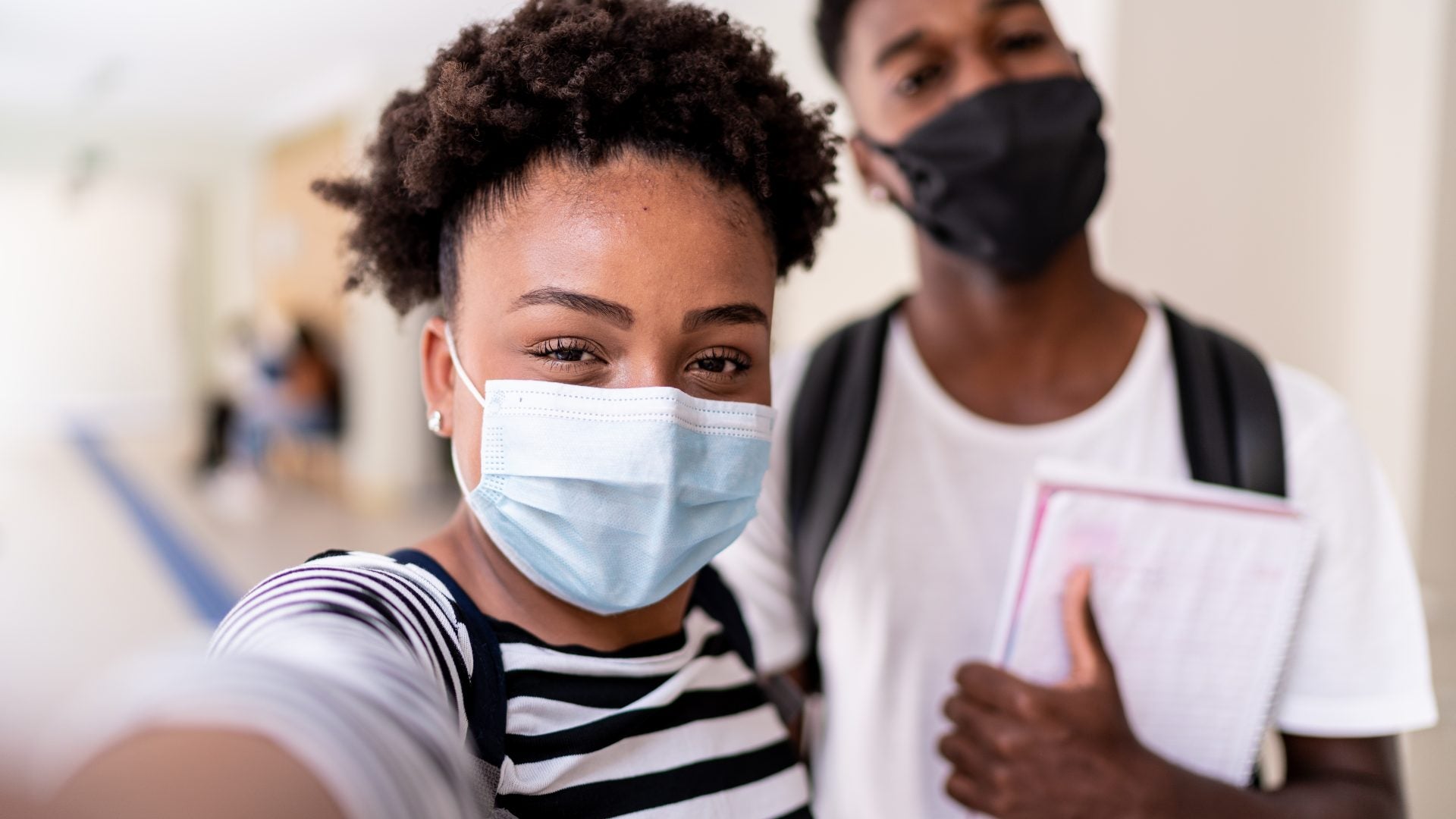
Can schools transform the way they approach discipline and decrease the criminalization of students, especially students of color and those with disabilities?
That’s the goal behind the Counseling Not Criminalization in Schools Act. The bill was reintroduced in Congress by Rep. Ayanna Pressley (D-MA) and Sen. Chris Murphy (D-CT), along with Sen. Elizabeth Warren (D-MA), Rep. Ilhan Omar (D-MN), Rep. Jamaal Bowman (D-NY) and Sen. Tina Smith (D-MN).
The legislation aims to help disrupt the school-to-confinement pathway, invest in safe and nurturing school climates that support all students and end overpolicing in K-12 schools.
“Every student deserves to learn in a setting free from fear, but when our education system is intertwined with the criminal legal system, students of color, LGBTQ+ students and students with disabilities are disproportionately criminalized for normal childhood behavior and are put on a pathway to confinement,” said Pressley, who discussed the measure at a virtual press conference.
“Our bill would address this by shifting federal resources away from school police and investing in culturally responsive nurses, mental health professionals and other trauma-informed staff that are proven to help our youth grow and reach their full potential. We must root out systemic oppression everywhere it exists—including in our schools,” she said.
In March 2021, the Congresswoman also reintroduced her Ending PUSHOUT Act, her legislation to end the punitive pushout of girls of color from schools and disrupt the school-to-confinement pathway. The bill is also informed by her People’s Justice Guarantee to address criminal justice reform.
The Counseling Not Criminalization in Schools Act would prohibit the use of federal funds to increase police presence in schools. Instead it would provide $5 billion in new grant funding to help schools hire more counselors, social workers and other behavioral health personnel, and implement services that create positive and safe climates for all students. It also incentivizes states and districts to bring an end to the criminalization of young people, particularly Black, Native American and Latino students, immigrant students, students with disabilities, LGBTQ+ students and other historically marginalized students.
“Every single student deserves a quality education and the support to make that possible. But in districts across America, educational outcomes are radically unequal, particularly for children of color and kids with disabilities,” said Rep. Omar in a statement.
She noted that in her hometown of Minneapolis, Black students are 41 percent of the student population, but make up three-quarters of all suspensions. “Kids need support, not punishment. I am proud to join this bicameral effort to invest in social workers, counselors and personnel in schools to make sure our most vulnerable kids have the support they need,” she said.
An ACLU report reveals that counselors, social workers, psychologists and other trained professionals actually improve social and educational outcomes for kids in schools, whereas the involvement of police in schools can increase the criminalization of students, particularly students of color and those with disabilities.
“Stationing police officers in places of learning creates an environment of criminalization from an early age—making it more challenging for our children to focus on their learning, growth, and unlocking their full potential,” said Rep. Bowman in a statement. “When we put an officer in a school, we’re sending a message that our children require surveillance. When we put a counselor in a school, we’re sending a message that our children deserve nurturing and support.”
He noted that the emotional, mental and social trauma of the past year and beyond makes the Counseling Not Criminalization in Schools Act even more urgent. “Our Black and brown students have shouldered a disproportionate burden during the pandemic, and we know they face a disproportionate amount of policing and criminalization in school. Let’s act now to decrease police presence and provide our schools with resources for counseling and mental health support students deserve.”